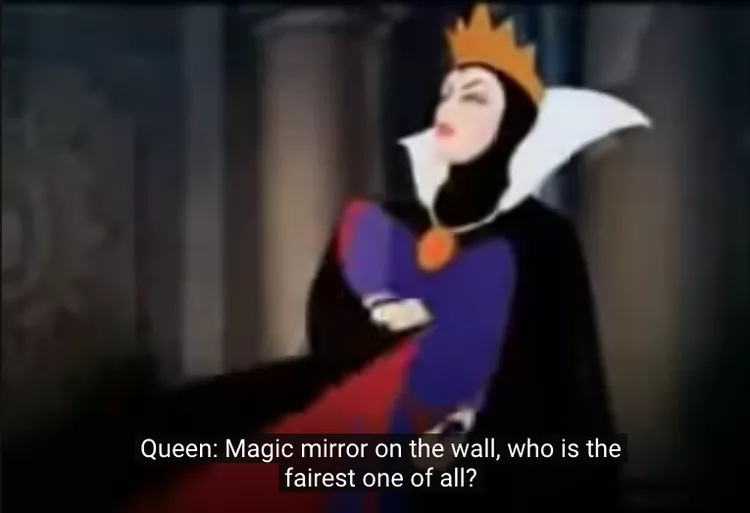The Mandela Effect is a type of false memory that occurs when many different people incorrectly remember the same thing. It refers to a widespread false memory that Nelson Mandela died in prison in the 1980s.
Memories are not always precise recordings of events. They can change with time, and people may have different memories in different contexts. Memory is also highly suggestible, which means that other people’s opinions and memories may influence what a person remembers.
Thus, widespread incorrect information can subtly influence individual memories, giving rise to conspiracy theories and harmful false beliefs. Incorrect beliefs about the death of Nelson Mandela are just one example of the Mandela effect.
Origins of the Mandela Effect

The term “Mandela Effect” was first coined in 2009 by Fiona Broome when she created a website to detail her observance of the phenomenon. Broome was at a conference talking with other people about how she remembered the tragedy of former South African president Nelson Mandela’s death in a South African prison in the 1980s.
However, Nelson Mandela did not die in the 1980s in a prison—he passed away in 2013. As Broome began to talk to other people about her memories, she learned that she was not alone. Others remembered seeing news coverage of his death as well as a speech by his widow.
Broome was shocked that such a large mass of people could remember the same identical event in such detail when it never happened. Encouraged by her book publisher, she began her website to discuss what she called the Mandela Effect and other incidents like it.
Notable Examples of the Mandela Effect

The story of Nelson Mandela is not the only example of this type of false group memory. As the concept of the Mandela Effect grew along with Broome’s website, other group false memories began to emerge.
Henry VIII Eating a Turkey Leg

People had a memory that the above portrait of Henry VIII featured him eating or holding a turkey leg, though no such painting has ever existed. There have, however, been similar cartoons created. This may be related to the common knowledge of Henry VIII as a large man.
Mirror, Mirror on the Wall

you watched Snow White and the Seven Dwarfs, you probably remember the line, “Mirror, mirror on the wall, who’s the fairest of them all?” As you can see from the above subtitled screenshot, the line actually began with the phrase “Magic mirror on the wall” instead. It probably doesn’t help matters that Julia Roberts and Lily Collins starred in a 2012 live-action film based on Snow White called “Mirror Mirror”!
Location of New Zealand

Where is New Zealand in relation to Australia? If you look at a map, you will see that it is southeast of the country. However, there is a community of people who claim to remember New Zealand being northeast instead of southeast.
Pikachu’s Black-Tipped Tail

Many people report remembering Pikachu, a Pokémon character, as having a black-tipped tail. In reality, the character has always had a solid yellow tail. The confusion or false memory may stem from the fact that Pikachu, as you can see, does have black-tipped ears.
Looney Tunes, Not Toons

It makes almost zero sense, but yes, the cartoon was spelled as “Tunes.”
Curious George’s Tail

… was never there. Are you freaking out? Okay, moving on.
Explanations for the Mandela Effect

So why would this effect even happen? Let’s explore.
False Memories

A more likely explanation for the Mandela effect involves false memories. Before we consider what is meant by false memories, let’s look at an example of the Mandela effect as it will help us to understand how memory can be faulty (and may lead to the phenomenon that we are describing).
Who was Alexander Hamilton? Most Americans learned in school that he was a founding father of the United States of America but that he was not a president. However, when asked about the presidents of the United States, many people mistakenly believe that Hamilton was a president. Why?
If we consider a simple neuroscience explanation, the memory for Alexander Hamilton is encoded in an area of the brain where the memories for the presidents of the United States are stored. The means by which memory traces are stored is called the engram and the framework in which similar memories are associated with each other is called the schema.
So when people try to recall Hamilton, this sets off the neurons in close connection to each other, bringing with it the memory of the presidents. (Though this is an oversimplified explanation, it illustrates the general process.)
Confabulation

Confabulation involves your brain filling in gaps that are missing in your memories to make more sense of them. This isn’t lying, but rather remembering details that never happened. Confabulation tends to increase with age.
Misleading Post-Event Information

Information that you learn after an event can change your memory of an event. This includes event subtle information and helps to explain why eyewitness testimony can be unreliable.
Priming

Priming describes the factors leading up to an event that affects our perception of it. Also called suggestibility and presupposition, priming is the difference between asking how short a person is, versus how tall a person is. Saying, “Did you see the black car?” instead of “…a black car?” makes a subtle suggestion that influences response and memory.
Alternate Realities

One theory for the basis for the Mandela effect originates from quantum physics and relates to the idea that rather than one timeline of events, alternate realities or universes may be taking place and mixing with our timeline.5 In theory, this would result in groups of people having the same memories because the timeline has been altered as we shift between these different realities.
You aren’t alone if you think this sounds unrealistic. Unfortunately, the idea of alternate realities is unfalsifiable, meaning there is no way to disprove that these other universes don’t exist truly.
This is why such a far-fetched theory continues to gain traction among the Mandela effect communities. You can’t prove it’s not real, so you can’t discount the possibility of it. For many people, the excitement of a bit of mystery in everyday life also likely comes into play.
The Internet’s Impact

The role of the internet in influencing the memories of the masses should not be underestimated. It’s probably no coincidence that consideration of the Mandela effect has grown in this digital age.
The internet is a powerful way to spread information, and with this spreading of information comes the potential for misconceptions and falsehoods to gain traction. People then begin to create communities based around these falsehoods and what was once in the imagination starts to seem factual.
In fact, in a large study of over 100,000 news stories discussed across Twitter, conducted over a period of 10 years, showed that hoaxes and rumors won out over the truth every time by about 70%. This wasn’t the result of manipulation or bots either—real verified accounts of real people were responsible for spreading false information at a much higher rate than the truth.
As each person chimes in with their own experience or memory of an event, those false memories could affect the memories of other people, thus coloring them to remember the events in the same way.
For example, Sinbad did star in other movies in the 1990s and appeared in a movie poster for the film “Houseguest” coming out of a mailbox (this looked similar to a genie, which could explain the association with the movie “Shazaam”). Sinbad also dressed up like a genie for an event that he hosted in the 1990s.
When one person mentioned this movie “Shazaam” (likely on the internet), it altered the memories of other people who tried to recall the movies that Sinbad made from the 1990s. Online communities spread this information until it appeared to be factual.














Leave a comment